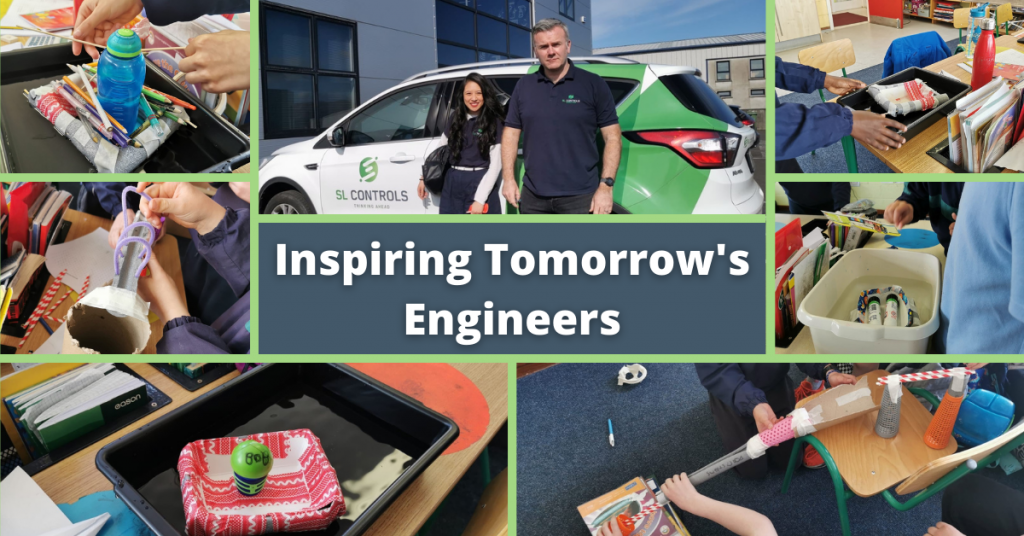“Where do we start, as there have been so many highlights over the last five weeks?”
That was Fiona Chung’s response when asked how the STEAM Engineering in a Box programme was going. The team and the children they are teaching have reached the halfway point of the programme.
STEAM is an organisation that works to inspire children about engineering as well as science, technology, arts, and maths. SL Controls signed up to lead a 10-week programme with a class of school children at Strandhill National School.
Two of our engineers volunteered to take part – Validation Engineer Fiona Chung and Systems Engineer Philip Nicholson. They lead a one-hour class every Friday on different engineering topics. Over the first five weeks of the programme, the children have learned many of the basic principles of engineering as they have taken part in activities that have included building bridges, boats, planes, and turbines.
“The activities are the best part,” said Fiona. “We go through the material, but the kids are already quite knowledgeable, and they are eager to answer what they know when we ask them questions. Then we get into the activities, and they are so excited. They are nearly fighting with each other to get started.
“After the activities, we have a recap, and that’s when I find they ask me questions. I think it’s because when you present to them, they are taking it all in. Then, at the end, they have the curiosity to find out how this relates to this, or this works with this.”
Philip said there is also a competitive streak between a lot of the children in the class. “It started in the first week,” Philip said, “when the groups were competing with each other to see which bridge could hold the most weight. Two weeks ago, we were making boats, and it became a competition about whose boat could hold the most without sinking.
“This activity is a good example of how it all works. We started by explaining to them how buoyancy works and Archimedes’ principle. Then the children split into groups to make boats, taking cardboard trays and waterproofing them, then using insulation foam to give the boats buoyancy.
“They were apprehensive at the start as to what they could put on their boat before it sank, but then they got more confident. The more load they could add to the boat, the more satisfaction they got from their creation.”
The biggest problem that Philip and Fiona face is having enough – enough materials or enough time, as the kids always want more. “What we’ve found is the children are very good at thinking outside the box with ideas for different materials or using items from previous weeks,” said Philip.
And getting everything done in the allotted hour? Sometimes they run into break or lunch, but Philip says it is the “quickest hour of my week”.
The competitive streak isn’t just between the children, either, as the SL Controls engineers also have their own little competition going on.
“I just want to throw it out there,” said Fiona, “I am the most popular engineer in class!”





